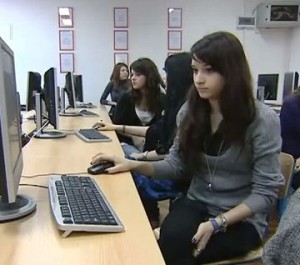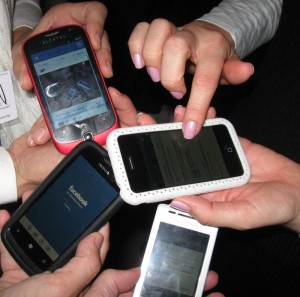To be honest, I am rather confused as to from which angle to approach this issue. I have worked with all age groups at all stages of education system except for pre-school. I have friends and fellow teachers who work in different types of institutions. I hear plenty of teacher talk in my staff room and just a little bit of it beyond its doors. Yet my experience is limited. It’s one particular private school, one university, one in-company ELT service provider, all located in Russia’s capital. Do they reflect the overall situation in Russia’s education? Probably they do. And yet I don’t feel comfortable drawing conclusions judging by my experience only. I am cautious to make generalizations here. For every point I could mention from my years of work or personal beliefs there would be found a dozen counter-arguments. It is a slippery way.
Education issues are causing heated debates everywhere in Russian media now. The Bologna process, state exams and subsequent changes in secondary education curricula, the introduction of paid secondary education in state schools across Russia: These are burning problems and, as it happens, they are followed by a lot of rumours, negativity, rejection and public disapproval, to put it mildly. What I’ll speak about may not be the most critical issue but it’s something that bothers me, something that I can relate to and that I can hopefully bring change to.
My concern is young teachers of English. I know dozens of young teachers, girls my age or younger, teacher training university graduates like myself, who flee from schools or education system in general. But wait… didn’t I run away from a school myself? That’s exactly what happened. I could no longer stand working in a school. Of course we should take into account all the factors and in each particular case of escape the factors might vary, but I dare say they won’t vary all that much. Low salary, work overload, teacher-parent issues and (as 90% of my case) the working atmosphere in general. Well, I’ve found my place after all but many don’t.
And yet the above-mentioned are not the reasons that worry me the most. There are a certain percentage of teachers willing to work in schools. After a while some of them burn out. A school year’s routine can be tiresome and can easily turn to a bog. This comparison is not accidental. I’ve heard the term more than once used by older, more experienced, and tired teachers. Burn-out results in further passivity towards development. It is caused by lack of motivation, inspiration and drive. I’m sure wherever you are you know what I’m talking about. You’ve seen these educators who might have once loved teaching; educators who used to be creative, unconventional and daring but over time have lost their interest.
There are two qualities that unite disinterested teachers: they are closed-minded and not informed. Well, it can easily be fixed, if you ask me! We need to show how exciting it is to be a connected English language teacher. We need to introduce them to web tools, international groups, communities and social networks. We need to encourage them to always remember to develop. My strong conviction is that at pedagogical universities would-be teachers of English should have a chance to learn about the global side of ELT.
I don’t know whether I will be a teacher for all my life or if there’s something else in store for me. Yet if I do teach for the rest of my life, I hope I will never turn into a Whining Teacher. It’s easy to find a Whining Teacher. They are ubiquitous and universal. It can be true that their universal whining is fair and logical, whereas their complaints reflect a teacher’s realia in any given country. I don’t want to become one as I want to believe, as I take my own little steps in order to look back one day and say, “Yes, I’ve tried. It might not have worked but I did my best trying to make a difference.”
















